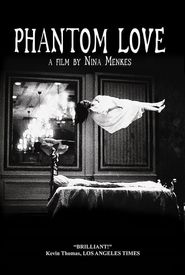Nina Menkes is a pioneering filmmaker and feminist artist, known for her thought-provoking and visually stunning works. Born in the United States to a family of Jewish immigrants, Menkes has drawn inspiration from her complex family history and the trauma of the Holocaust.
Throughout her career, Menkes has received numerous awards and accolades, including a Los Angeles Film Critics Association Award, a Guggenheim Fellowship, and a Creative Capital Award. Her films have premiered at major international film festivals, including Sundance, the Berlinale, and Cannes.
Menkes' work often explores themes of trauma, alienation, and violence, drawing from her own experiences as a first-generation American. Her films often feature a sense of harsh reality, juxtaposed with the inner world of her characters.
Menkes has collaborated with her sister Tinka on several projects, and has credited her for many of the key radical aspects of their work. The sisters' feature film "The Bloody Child" was selected as one of the best five films of the past fifty years by the Viennale International Film Festival.
Menkes has also worked on experimental documentaries, including "Massaker", which premiered at the Berlinale in 2005 and received a FIPRESCI Award. Her feature film "Phantom Love" premiered at Sundance in 2007 and received rave reviews.
In recent years, Menkes has toured with her cinematic talk "Sex and Power; The Visual Language of Oppression", which was later made into a feature documentary, "Brainwashed". The film was selected for numerous international film festivals and received widespread critical acclaim.
Menkes has been recognized as one of America's most important filmmakers, and has been praised for her unique and innovative approach to storytelling. Her work continues to be celebrated and recognized for its impact on the film industry and beyond.






























